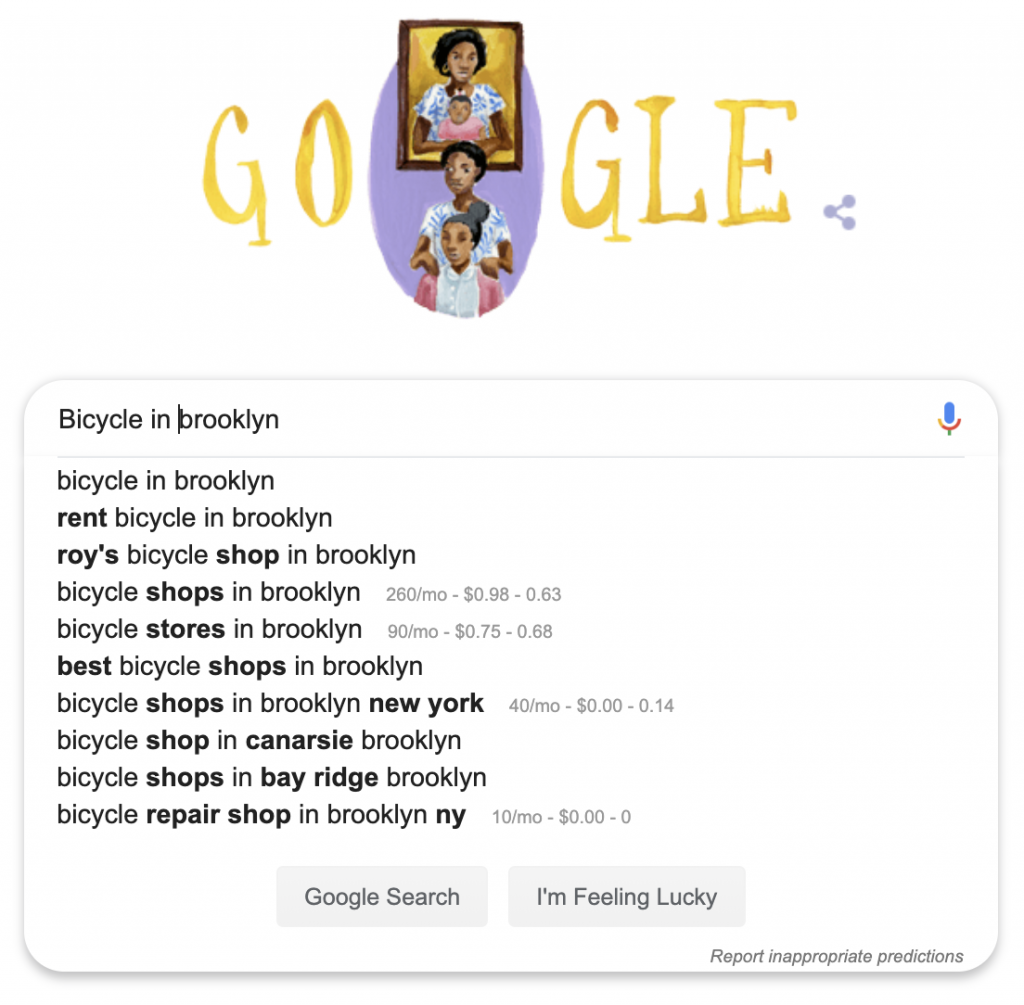
LOCAL SEO KEYWORD RESEARCH: THE KEY TO ENGAGING CUSTOMERS IN YOUR AREA
How to beat your competition and master local SEO keyword research
So, you’re looking over your website analytics and you notice that you’re not ranking for local keywords. You may say to yourself that local keywords aren’t that important. “I’m ranking for my big keyword categories. Why do I need to worry about local keywords?”
Because you have local customers.
We at 1stPage want to see you achieve victory over your local competitors. We’ll introduce you to local keyword tools so that you can start carrying out your own local keyword research.
Why local keywords are good
At first glance, local keywords seem like low volume dead ends. Keyword tools usually don’t give incredibly accurate data for them. Local keywords represent searches that are more specific than high volume keywords and they represent buyers who are more prepared to buy. Dominating these local keyword niches can be the key to victory over your local competitors.
Consider if someone lives in Brooklyn and is looking to buy a new bicycle.
They’ll probably start with ‘where to buy bicycles in New York’, ‘bargain bicycles shops in New York’, ‘’bicycle shops’, or ‘where to buy a bicycle’ just to see what pops up. Although, if they were to live specifically in Bushwick, they’ll eventually narrow their search queries with location signals such as ‘bicycles for sale in Bushwick’ (and other nearby neighborhoods) as they do their research to compare models and pricing. If you are using the right local SEO keyword research tools, you can find these local keywords and rank for these “long-tail keywords” in that area.
Local keywords are usually also long-tail keywords. They are called “long-tail keywords” because they are not searched at high volumes individually but, as a whole, make up the majority of the searches done online.
These are low-volume keywords that represent buyers who are further down the buying funnel. As such, these customers are more targeted and can be found more easily with long-tail keywords, as opposed to more generic ones. Customers are more qualified and are more prepared to buy. Examples of long-tail keyword phrases are searches like ‘best bicycle bargains in Flatbush’. Local keyword tools can help you find long-tail keywords for local businesses in your niche.
The Importance of long-tail keywords for local businesses
While you may run a business that is location agnostic (for example, various kinds of e-commerce businesses like Amazon sell to national customers), local keyword research is still important. Long-tail keywords for local businesses that rank higher for your niche can enable you to create content aimed at those locations.
How do I start local keyword research?
There are some great, free local search tools out there that will help you find long-tail keywords for local businesses:
Google Trends is a great local keyword research tool for a number of reasons, but the takeaway here is that you can take a generic phrase and see how it trends per region. From there, you can drill down and adjust your SEO content strategy to aim at search rich regions.
Keywords Everywhere is a great Chrome plugin that does your keyword searching for you! We love this local search tool.
The plugin lists related keywords for what you enter in a normal search. It also pulls volume, CPC and competitor data, in place of the knowledge graph to the right. This local keyword tool is an incredible time-saver while doing keyword research.
A website designed originally for use by PR professionals, Answerthepublic.com takes a keyword phrase and breaks it down into a mind map of related keyword phrases. While local searching can only be done with the pro version, the free tool still gives great info regarding how keyword searches branch out on the search engines. Further, the site gives monthly volume and CPC. This can all be downloaded via CSV, which makes this a great local keyword research tool.
Google Autocomplete, Google Maps, and Google My Business
Google’s autocomplete feature suggest to users different variations of what they may be searching for to make for a better user experience. 1stPage finds this invaluable as it shows marketers actual searcher intent. For example, when browsers type ‘bicycle in Brooklyn’, Google can show further long-tail terms that can further improve your research, lending valuable insights.

In addition, seeing what geographical areas Google references in a search and keeping a list of Google Maps neighborhoods can also help. Using these insights, you can find the areas of interest to Google and optimize not only relevant pages on your site but also your Google My Business entry. Having Google My Business set up should be your first step in a Local SEO strategy. You want to make sure that you have a fully filled out GMB listing in order to appear in the mapstack and draw in more traffic for that specific term.
How can I get started with local keyword research?
Keyword research involves knowing your customers, the market, your competitors, as well as creating a customer journey funnel that describes the experience ― from the first touch to final sale. This thread from Moz suggests that you use your tools to conduct basic keyword research and discover what local keywords you rank for in your geographical niche.
Where can I get my local keyword research questions answered?
We at 1stPage want to help you win in the local keyword battle. Searchers are sophisticated, more and more of them use local search terms to find the businesses and services that they need. If you have questions about local SEO services, local search tools or long-tail keywords, reach out to us. We’d love to talk with you about local SEO keyword research and answer your local keyword questions.


